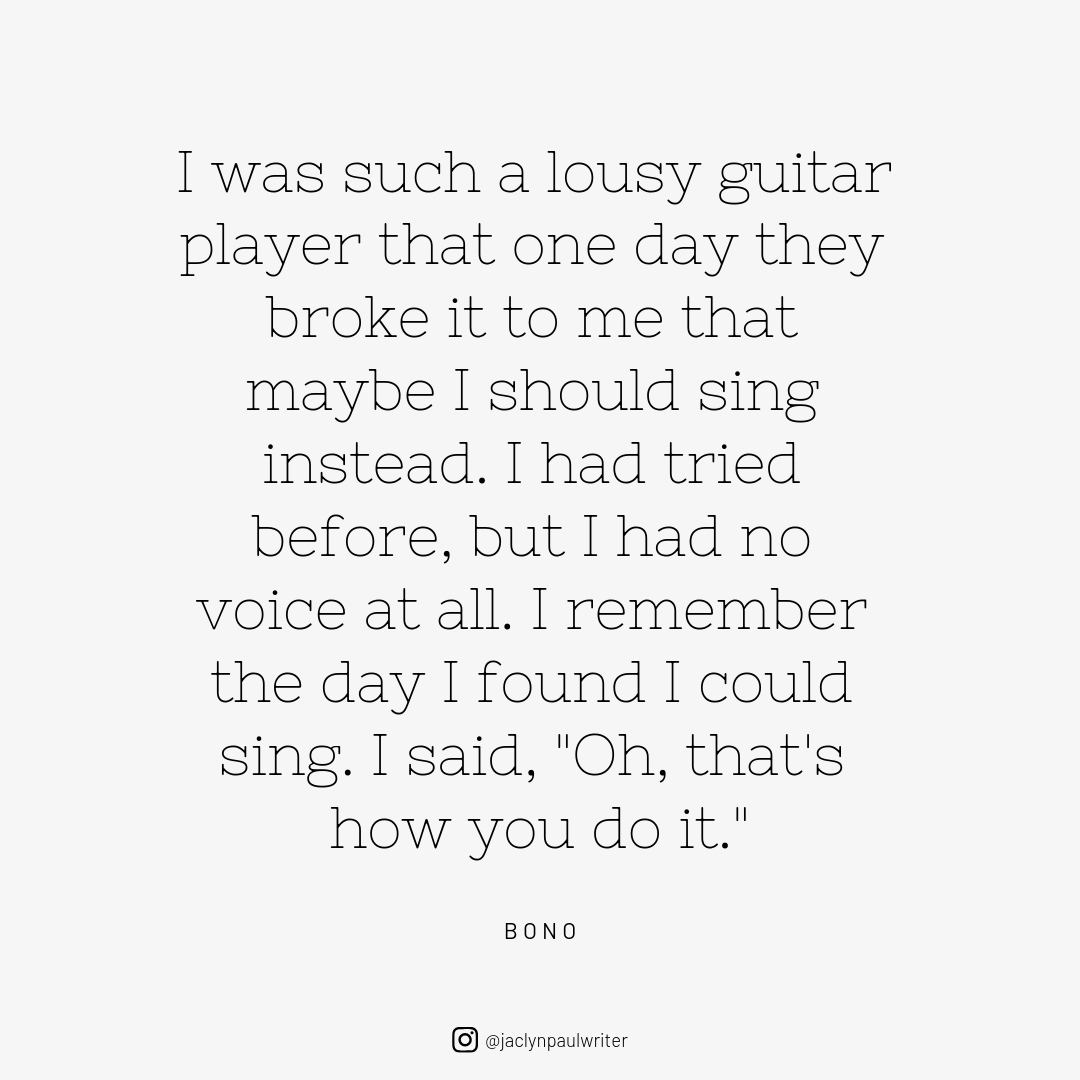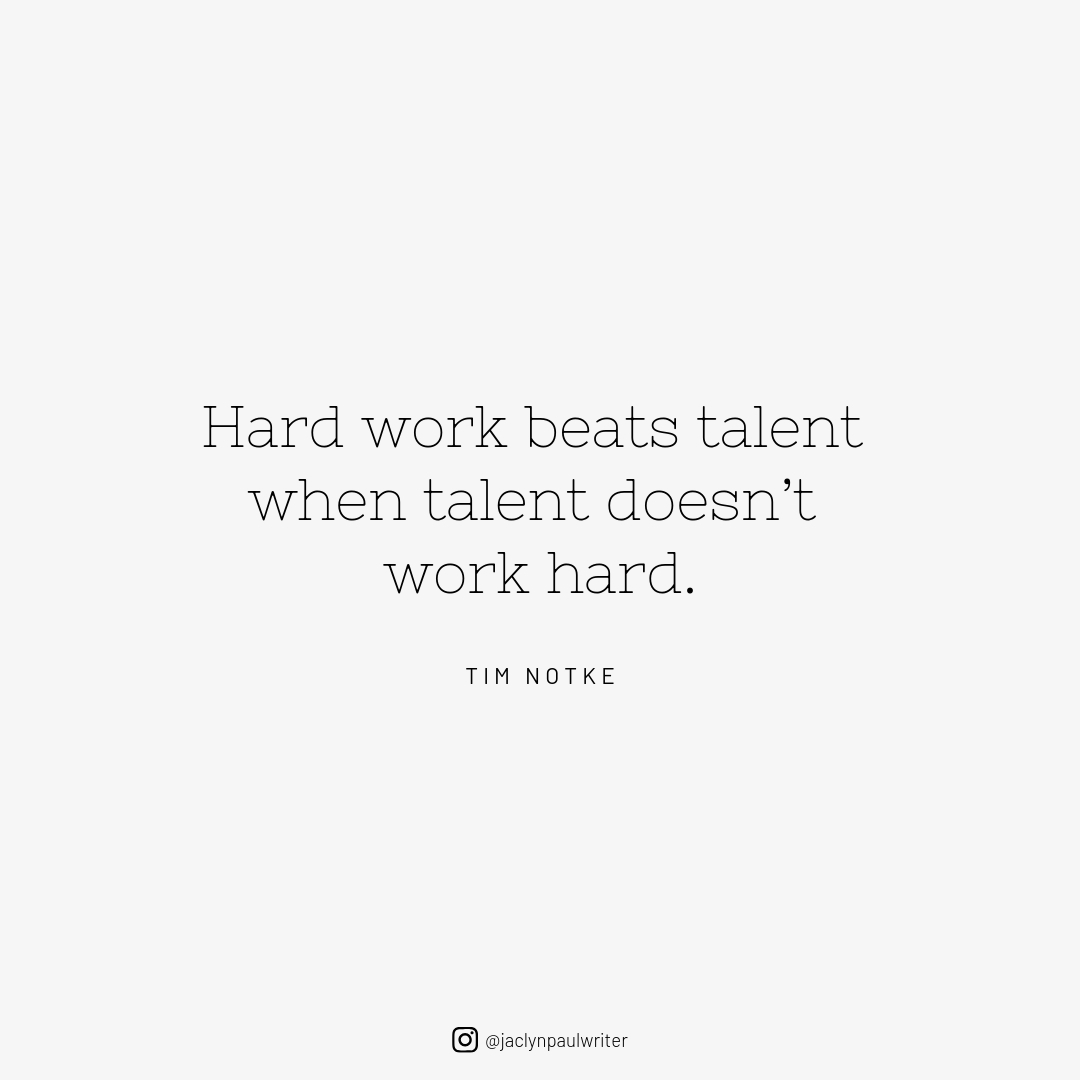
A theme has emerged for my mid-30s: I’m obsessed with doing stuff I’m bad at.
Weird, right? I’ve been labeled gifted and talented for pretty much my whole life. Toward the end of high school, my mom advised me to go to college for something I was “good at.” And that made sense. It seems wasteful for people with high aptitude not to pursue a field that aligns with their strengths.
But talent doesn’t guarantee success. In fact, it sometimes did the opposite for me.
Take music, for example. I displayed exceptional talent in music as a kid, which earned me a lot of praise. I assumed it would take me places — places like Julliard or the Curtis Institute or Berklee and a career with a big-city orchestra. Music was my life. I mean that in the deepest, most un-hashtaggy way possible. But I rarely play at all anymore.
In fact, I spend more time doing things I’ve sworn up and down I would never do. Things I claimed I couldn’t do.
I’ve thought a lot about this. Why do I get so much satisfaction from working outside my natural comfort zone? Why do I have trouble engaging with the things I’m supposedly so good at?
It really comes down to mindset, especially in areas where we naturally excel — and where people tend to heap on the praise.
I’ve been writing fiction since age four, just like my husband’s been coding since before he can remember. It’s easy to think it always came naturally. But we were all newbies once and it’s okay — even healthy — to be a newbie at something again.Click To TweetEverything is hard sometimes.
When it came time to select a college major and plan my career, my parents wanted me to pursue my passions. As a so-called “elder millennial” from a blue-collar background, I learned exceptional work ethic from my parents. But they also wanted a different life for me. They worked really hard to be able to send their kids to college. It’s natural to want that to amount to something. To want your kid to find a true career, a job that doesn’t even feel like work.
But everything worth doing is work, whether it’s a marriage, a passion project, a job, even a recreational activity. I tell people this about relationships but it holds true for almost anything: The One doesn’t exist. What does exist is the one who’s worth the work.
I didn’t prepare for this when I decided I wanted to be a musician. After all, everything had always felt easy. When I got a glimpse of the amount of work required to succeed in a program like Juilliard or the Curtis Institute, I bailed. I applied to normal colleges and considered a major in psychology instead.
Almost 20 years later and having written two books, I now know every big project stops feeling fun at some point. Even if you do what you love, even if you’re totally invested in the work, you won’t have fun every day.
And that’s okay. It’s not a buzzkill. It’s what makes these projects feel worthwhile — like an accomplishment.
Even if you’re doing what you love, even if you’re fully invested in your work, there will be days when you don’t have any fun. And that is more than okay. It doesn’t make you unworthy — it actually does the opposite.Click To Tweet“Hard work beats talent when talent doesn’t work hard.”
— Tim Notke
By the time we reach our 30s, some of us have reached a high level of proficiency (and success) in our work. I’ve been writing fiction since age four. My husband doesn’t remember a time before he know how to code. We’ve spent almost our entire lives feeling better at these things than most other people.
That can be intimidating for newbies. When I see people like my husband, who’s an excellent software engineer, it’s easy to question my own app development goals. Why should I bother trying to gain this skill if I’ll never be in the same league as people like him?
And yet just like raw aptitude doesn’t necessarily beget success, success doesn’t require raw aptitude, either. Consider what Bono has said about his early days with U2:
“When we started out I was the guitar player, along with the Edge—except I couldn’t play guitar. I still can’t. I was such a lousy guitar player that one day they broke it to me that maybe I should sing instead. I had tried before, but I had no voice at all. I remember the day I found I could sing. I said, ‘Oh, that’s how you do it.’”
Of course, hard work won’t always produce miracles. The biggest success stories usually require a fair dose of luck. But everyone has a right to show up and work hard, and no one should expect a reward for potential without work.
We become the stories we tell ourselves.
One reason I didn’t work hard at new skills throughout my 20s was I didn’t think I had it in me. People — ourselves included — fill our minds from a young age with stereotypes about how our brains operate. This can directly affect whether we’re even willing to try, let alone put in hours of work on a new skill.
For example: I worked at my university’s residential networking helpdesk. It was a pretty sweet gig for a nerd looking for an easy paycheck. Early one semester, a guy brought his daughter’s computer to me for repair. When I asked him if she’d prefer us to deliver it to her room or have her pick it up from the helpdesk, he laughed at me.
“She’s an art major,” he said. “She wouldn’t even know how to plug it into the wall.”
I probably gave him a weird look and slipped in the fact that I, too, was an art major. That hadn’t precluded me from building my own computers since the 10th grade, but clearly this man thought it should.
While I may have looked down on him for this assumption, I wasn’t immune to bias either. I assumed for many years that I would never learn to code because I was such a strong writer. Many writers and English majors turned software developers will confirm this is patently false. But we all hear stories: about musicians playing instruments because they can’t sing, about girls not wanting to become auto mechanics, about writers not being good at math. Too often, we believe them. We say it’s just how my brain works.
Our talent will betray us if we let it.
To some extent, that may be true. We have more natural ability in some areas than others. But that natural ability can sabotage us.
As a kid, I viewed music as something I was born to do. I decided to learn to play the flute because it felt right the moment I picked it up. I couldn’t produce a sound with the brass instruments and the reeds didn’t inspire me, but the flute was love at first sight.
And I accomplished a lot with that instrument. More than anyone else my elementary school band director had taught in his lengthy career. As a teenager, I got invitations from community and college bands to sub in at concerts. I could come to the dress rehearsal and pick up the music fast enough to fill in at the performance. People told me all the time how good I was. I began to believe being good at something meant you never failed. You never had to practice.
So failure hit me hard. When I didn’t make the cut for a countywide scholastic band, I felt affronted. I didn’t audition a second time. I quit my private lessons when I tired of demanding technical exercises that would’ve required rote practice. It was easier to stay where I felt comfortable. Where everyone praised my talent.

Fortunately for me, I went to art school for painting, a skill at which I possessed little natural talent. I had to work exceptionally hard just to feel like my work deserved to hang on the same wall as my peers’. I also learned how to give and receive critique. I carried this into my adult life, along with a belief that I could succeed if I worked hard, even if I lacked the raw talent. While I regretted not going to school for music — what could I have accomplished if I had started from a place of strength? — the experience taught me I could survive anything.
Growth mindset vs. fixed mindset.
I later learned that art school taught me a growth mindset: a belief that failure offers an opportunity to learn. And that belief came directly from the feedback I received from my peers and mentors.
A lot of folks receive the sort of praise I did as a kid. People tell us we’re smart, we’re talented musicians, we’re good writers, we’re natural-born athletes. It sounds positive, but it also perpetuates a belief that success comes from inborn traits.
On the flip side, praise for our efforts helps us develop a different mindset. Psychologist Carol Dweck studied the effects of each kind of praise on children. She discovered a big disparity in how those kids responded to challenges. Kids praised for persistence and hard work demonstrated greater willingness to take risks. They viewed mistakes as an opportunity to learn. Those praised for their talent and intelligence were far less resilient. They hesitated to challenge themselves or step outside their comfort zone. They saw failure as a statement on their worth and ability.
In other words, traits-based praise resulted in a fixed mindset whereas effort-based praise fostered a growth mindset. I can see now that while I excelled in music throughout my school years, I had a fixed mindset about it. True challenges were hard to find, but I also didn’t embrace them or work hard to seek them out. I didn’t want to fail. I didn’t want to reach the end of my talent.
With growth comes vulnerability.
As I’ve worked to develop my growth mindset, I’ve found it very satisfying to go back and conquer my achilles heels. It all started a few years ago when I challenged my image of myself as “not a runner” and trained for a 5k. Last summer, I ran a 10-mile race despite claiming I never wanted to run farther than five miles. Maybe I could be a runner, after all. And what else?
As it turns out, most of my perceived limitations were just that: perceived. I’ve learned to code even though “my brain doesn’t work that way.” This winter I learned to snowboard after deciding long ago that I shouldn’t bother because I was “definitely not a natural.” We really can do or be almost anything, provided we’re willing to show up and work hard at the beginner stage.
And that’s the hardest part, even if you (like me) have no delusions about becoming a professional snowboarder at age 34 or landing a software engineering job at Google after doing a few online tutorials. To learn a new skill as an adult is, in a way, to become a child again. It requires a certain degree of vulnerability. Mastery of a skill can give us a feeling of power and superiority. To willingly become a beginner again requires us to cede that power, humble ourselves, ask stupid questions and look foolish when we fall down.
Not every adult is willing to do that. Our natural instinct is to protect our power, our dignity, our stability. Not to expose ourselves to defeat. But in taking that risk, I’ve learned that a great many locked doors in my life were never actually locked at all.
Leave a Reply